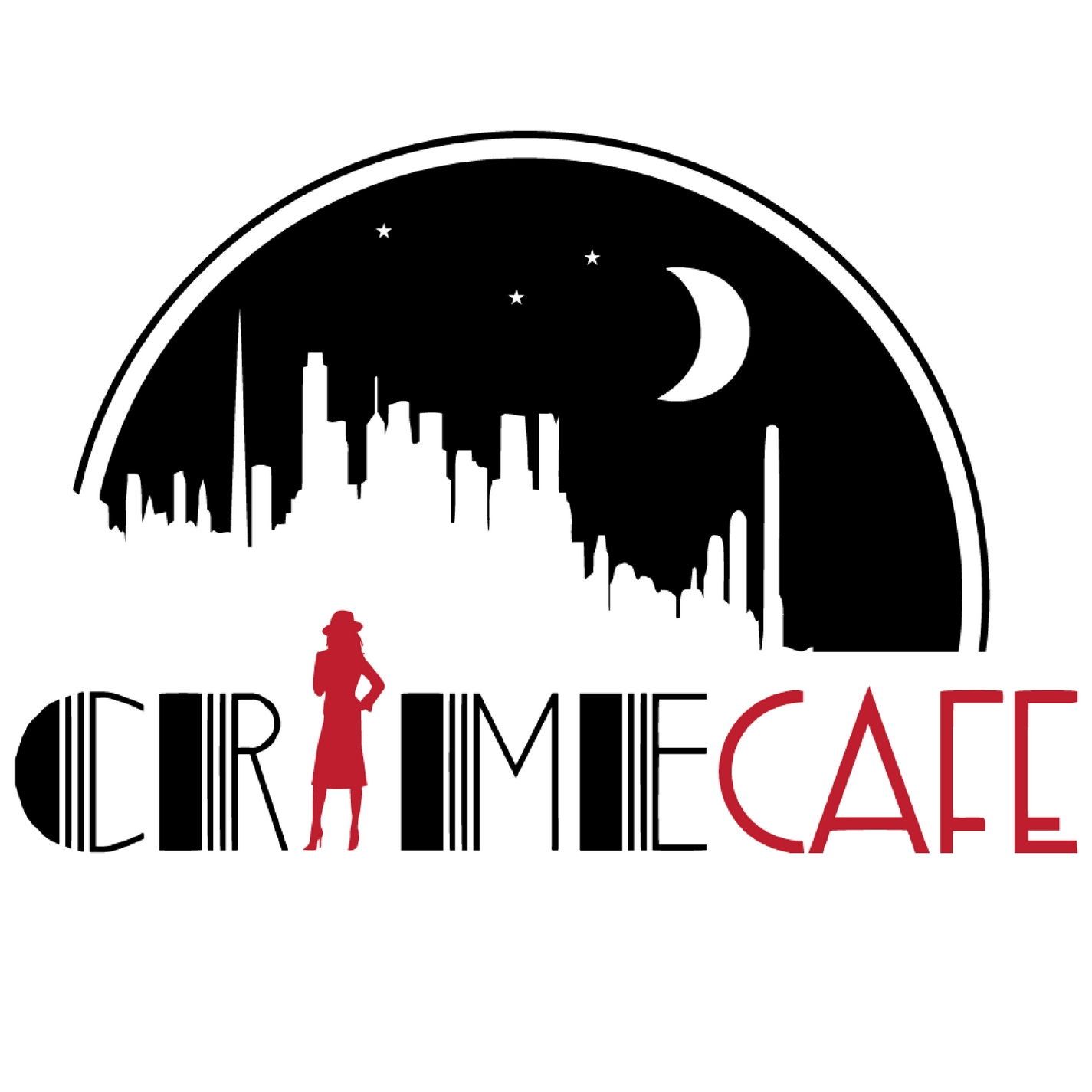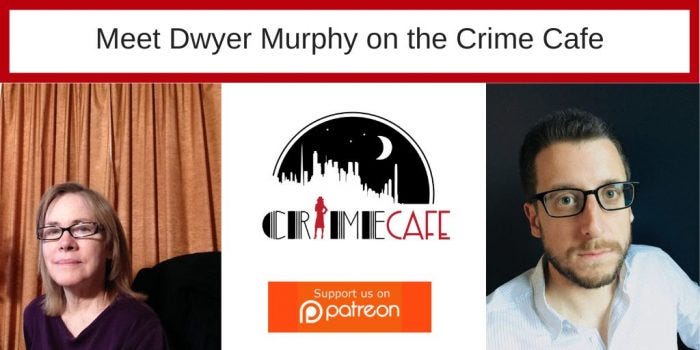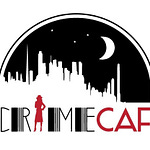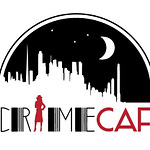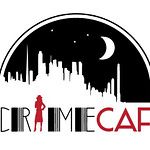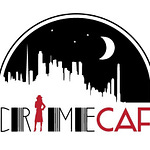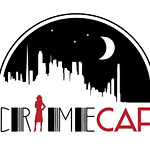This episode of the Crime Cafe podcast features my interview with crime writer Dwyer Murphy.
Check out what he has to say about his debut novel, AN HONEST LIVING, as well as his favorite crime writers and movies.
Before I bring on my guest, I’ll just remind you that the Crime Cafe has two eBooks for sale: the nine book box set and the short story anthology. You can find the buy inks for both on my website, debbimack.com under the Crime Cafe link. You can also get a free copy of either book if you become a Patreon supporter. You’ll get that and much more if you support the podcast on Patreon, along with our eternal gratitude for doing so.
Check us out on Patreon: https://www.patreon.com/crimecafe
Debbi (00:54): But first, let me put in a good word for Blubrry podcasting.
I’m a Blubrry affiliate, but that’s not the only reason I’m telling you this. I’ve been using Blubrry Podcasting as my hosting service for my podcast for years and it’s one of the best decisions I ever made. They give great customer service, you’re in complete control of your own podcast, you can run it from your own website, and it just takes a lot of the work out of podcasting for me. I find for that reason that it’s a company that I can get behind 100% and say, “You should try this.” Try Blubrry. It doesn’t require a long-term contract, and it’s just a great company, period. It also has free technical support by email, video, and phone, so you can get a human being there. Isn’t that nice?
If you want to podcast, try out Blubrry. No long-term contract, excellent distribution, and great technical support, too, by email, video, and on the phone. I’ve included an affiliate link on this blog.
Download a copy of the PDF transcript of this episode here. The following is an excerpt from our discussion.
Debbi (00:52): Hi everyone. My guest today is a writer and editor whose work has appeared in many publications, including The Common, Rolling Stone, Guernica, The Paris Review Daily, and Electric Literature. He’s also editor-in-chief of CrimeReads a very popular site for crime and thriller readers, including myself. I read it. He is also the author of the recently released novel AN HONEST LIVING. What a great title for a novel about a lawyer. Thank you very much. <Laugh> And it’s really a good book. I have to say that. It’s my pleasure to introduce my guest Dwyer Murphy. Hi Dwyer. How you doing today? <Laugh>
Dwyer (01:41): Great. Thank you for having me. This is a real trip. I love, you know, I love to talk crime and noir with real aficionados. That’s my favorite part.
Debbi (01:48): Oh yeah. And movies. Oh, you mentioned movies in your book and I’m like, I’m in. I love movies, especially those old noir movies. So your book I have to say really is like a love letter to New York City. <Laugh> I’m really enjoying it as a crime reader and as a native New Yorker. So what prompted you to write the book? What inspired you?
Dwyer (02:15): Well, it was something I had always wanted to do and had tried many times over the years for a long time, I was kind of writing, trying to write a very different type of book. I had a specific sort of very somber series, literary novel that I felt like needed to get out of me and nobody in the world needed to read that including me. And I sort of became disenchanted with the prospect at some point. And then at that point had already rediscovered my love of crime fiction and noir. And my wife was my wife was pregnant with our first child and we were realizing how dramatically our lives were about to change. And we had this sort of nervous habit that we would do. We’d stay up late watching old movies. And we were watching Chinatown one night and we had this strange habit where we kind of discuss different lawsuits the characters might bring against one another.
It’s just how we like to watch movies. So my wife is a lawyer and I’m a retired lawyer and that’s just how we, how we amuse ourselves, I guess. And so we were talking through the plot to Chinatown and what kind of suits Jake Gittes and Evelyn Mulwray and all these characters might bring against one another, talking about these old common law torts and things, and it suddenly occurred to me that like this could be the beginning of a, a very bizarre sort of crime novel. And the next morning I, I started the first chapter and it’s more or less intact in the book as is. And that, that became the novel.
Debbi (03:48): Oh my gosh. That sounds like almost like the basis for a really cool podcast when you go down to it. Want to do one <laugh> I may be serious.
Dwyer (03:59): Exactly. I do. I, I like old movies in that way. It’s like a very strange engaging way to watch a movie. And it’s just this little hobby that we kind of came up with and, you know, Chinatown wasn’t the, the only one, but that was one that we kind of kept returning to. For some reason it gave us comfort. I think that it’s probably a bizarre thing to say that when you’re, you know, expecting your first child and can’t sleep and you’re staying up late to watch Chinatown as a comfort, but for some reason it, it really was for us. There’s something about the rhythms and the textures of that kind of movie, which you know, itself is, you know, it’s a neo-noir. It’s sort of looking back on another era trying to recapture something from a lost period.
There’s something about the rhythms and the textures of that kind of movie, which you know, itself is, you know, it’s a neo-noir. It’s sort of looking back on another era trying to recapture something from a lost period.
Debbi (04:41): Exactly. Yeah. And there’s a comfort in that, in, in kind of going to those familiar tropes.
Dwyer (04:48): Right. And I think, you know, it made some sense to me to be, you know, I wanted to write a, an actual private eye novel. I love private eye novels, but it didn’t seem so obvious to me how you would write a relatively contemporary one. This is set in 2005, 2006, Brooklyn. How you would write a contemporary version of that, because I just don’t know that many practicing PIs. There’s a few out there and I’ve worked with a few when I was a lawyer, but you know, it’s not the same kind of profession that maybe it once was, but it occurred to me that a, a washed out corporate lawyer or somebody who was kind of doing neighborhood jobs and piecing together cases could act sort of in the same way. Formalistically that a, a traditional private eye might act in a fiction.
Debbi (05:35): Yeah. Yeah. I, I, I also write about a lawyer who solves mysteries, so <laugh>, I know. Yeah, she’s still practicing law.
Dwyer (05:47): It’s just a useful thing, right? Well, because it’s, you know, they, a lawyer can gain entry into rooms that a lot of people could not, and, you know, they’re invited into dens of corruption in a way that most people aren’t. So it gives this plausible excuse to have somebody walk in the door and be allowed into other people’s confidences immediately.
Check out the rest of the interview here.
For access a copy of the entire transcript see the intro. You can also get copies that are readable on your phone or other device plus other perks, if you become a Patreon supporter.



